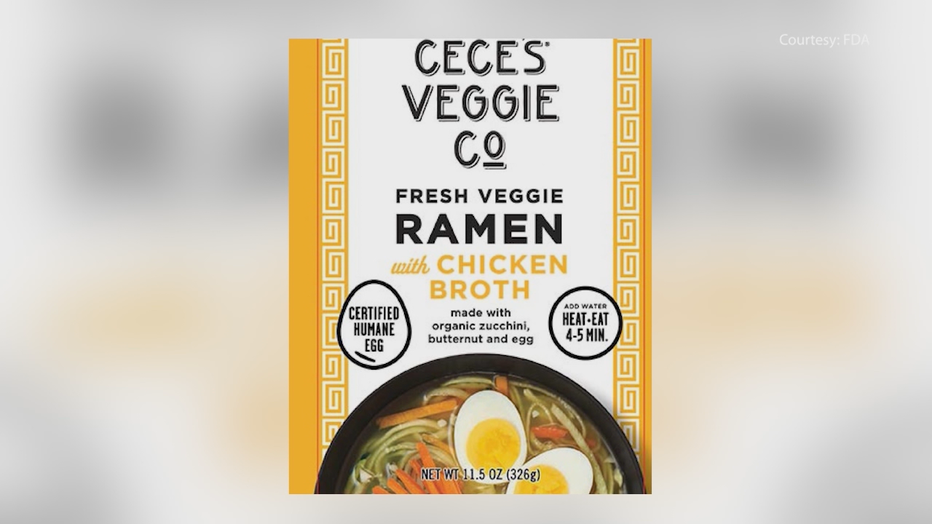What's Really Going On with Ramen Recalls?
Hey there, ramen fans. Let's dive into the latest buzz surrounding your go-to comfort food. Officials have found that Sun Noodle's S&S Cup Saimin might contain undeclared egg powder, which is a major issue for those with egg allergies. If you're allergic, even a tiny bit of egg can trigger a severe reaction, so this is no small deal. But don’t panic yet—let’s break it down.
Separating Fact from Fiction
First things first, let’s clear the air. Despite what you might have seen on social media, there hasn’t been a recall for instant ramen due to deadly bacteria, according to the CDC and FDA. Those TikTok warnings about five U.S. children dying from contaminated noodles? Completely false. While it’s always good to stay informed, it’s equally important to fact-check before hitting the share button.
What Happens When Ramen Goes Wrong?
When we talk about ramen contamination, we’re referring to harmful substances or microorganisms that can make their way into your noodles. This can happen at any stage—production, packaging, or storage—often because of poor hygiene practices or subpar manufacturing processes. It’s not just about bacteria; it could be anything from allergens to foreign objects. Imagine biting into a noodle and finding something that doesn’t belong there—that’s where the risk comes in.
Read also:Sons Tragic Descent Murder Of Retired Detective Father Sparks Insanity Defense
Why You Can Still Enjoy Your Ramen
Let me tell you, ramen lovers, there’s no need to give up your favorite dish just yet. While there are legitimate concerns about food safety, reputable companies take these issues seriously. They implement strict quality control measures to ensure their products are safe from contamination. For instance, a study conducted in Malaysia in 2022 tested six popular ramen brands and found zero evidence of insect or parasite contamination. You can read the full research here if you’re curious.
Recent Recalls Explained
Now, let’s talk about the recall involving Sun Noodle’s S&S Cup Saimin. The FDA has classified this as a Class I recall, meaning it poses the highest level of risk. Why? Because the product contains undeclared egg, which is a major allergen. If you’ve already bought some of these noodles and you’re allergic to eggs, listen up: check your pantry immediately. This recall affects products distributed in Hawaii, California, Nevada, and Utah, so if you live in one of those states, you’ll want to pay extra attention.
Another recall involves Veggie Noodle Co., LLC, which is voluntarily pulling its Cece’s Brand Fresh Veggie Ramen with Chicken Broth over concerns about Listeria contamination. The FDA announced this on Saturday, and the affected products were manufactured between May 9, 2023, and May 8, 2024. If you’ve got any of these in your freezer, it’s time to toss them out or return them for a refund.
How Contamination Happens
Contamination can happen in several ways. Sometimes, it’s accidental—like when someone handling the food doesn’t follow proper hygiene protocols. Other times, it might be intentional, though that’s rare. Picture this: someone places the noodles on a surface that hasn’t been sanitized, and suddenly, you’ve got a potential health hazard. That’s why manufacturers have to be extra vigilant every step of the way.
Protecting Yourself as a Consumer
As much as we love ramen, it’s important to stay informed and take precautions. Here’s what you can do:
- Check for recalls regularly on the FDA’s website.
- Read ingredient labels carefully, especially if you have allergies.
- Store your noodles properly to avoid any unnecessary risks.
If you’re like me and have severe allergies—trust me, anaphylactic shock is not fun—you know how hard it can be to find safe options. It’s a constant challenge to ensure that the noodles you’re eating haven’t come into contact with allergens like fish or shellfish. But with a little extra care and awareness, you can still enjoy your favorite foods.
Read also:Jimmy Warden And Samara Weaving Shine At The Premiere Of Cocaine Bear
Is Ramen Contamination a Public Health Crisis?
So, is contaminated ramen a significant public health concern? The short answer is yes, but only if proper safety measures aren’t followed. Foodborne illnesses can be serious, and when millions of people consume the same product, even a small issue can snowball into something much bigger. That’s why transparency and accountability from manufacturers are crucial.
Ultimately, the key is balance. Ramen is a convenient, affordable, and delicious meal option for so many people around the world. By staying informed and making smart choices, you can continue to enjoy it without compromising your health.
Final Thoughts
At the end of the day, food safety is a shared responsibility. Manufacturers need to uphold high standards, and consumers need to stay vigilant. Whether you’re slurping down a steaming bowl of ramen or exploring new flavors, remember that knowledge is power. Keep an eye on recalls, read the fine print, and don’t hesitate to ask questions. Your health—and your taste buds—will thank you for it.


